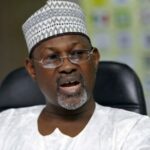Following the devastation of the recent flooding in Borno State and other parts of the country, stakeholders have called for immediate action to address climate-related disasters and improve accountability mechanisms in Nigeria.
They made the call on Thursday in Abuja at a one-day workshop on Climate Accountability, Report Validation, and Post-COP29 Assessment organized by the Human and Environmental Development Agenda (HEDA Resource Centre) under the Africa Activists for Climate Justice (AACJ) Project.
Discussions centered on HEDA’s survey findings on flood early warning systems, climate accountability and Nigeria’s commitments made at the COP29 climate conference in Baku, Azerbaijan.
HEDA’s Executive Secretary, Mr Sulaimon Arigbabu, noted the need for effective early warning systems in flood-prone areas, citing recent flooding in Maiduguri as evidence of governance gaps.
He said that HEDA’s report revealed significant shortcomings in flood preparedness, with many communities lacking timely access to flood warnings.
The workshop emphasized targeted interventions for high-risk states, urging the allocation of resources, training, and infrastructure to reduce flood impacts.
“Inclusive climate accountability was also highlighted, it is important to ensure climate action plans and early warning systems are accessible to vulnerable groups, such as women and people with disabilities.
“Additionally, there is need for community-led solutions, the use of local knowledge and bottom-up approaches in flood management and climate adaptation are all important for the wellness of the nation in managing climate change impacts,” Arigbabu said.
To enhance accountability, participants called for strict enforcement of transparency laws, like the Freedom of Information (FOI) Act, and legal action against lapses in climate governance.
Also capacity building was identified as crucial, with recommendations to train media, CSOs, and local communities to demand climate accountability and improve disaster preparedness.
The workshop also addressed challenges related to the $300bn annual climate finance commitment from COP29.
Stakeholders noted that complex funding requirements hinder access for countries like Nigeria, thus the need for robust frameworks and local capacity to secure and use these funds effectively.
The pivotal workshop which brought together representatives from government agencies, traditional institutions, local governments, CSOs and the media among others further stressed the importance of reducing reliance on imported technologies by developing local solutions for climate adaptation and mitigation.
The event called for greater public awareness, punitive measures for negligence, and stronger collaboration between communities and government agencies, urging stakeholders to transform COP29 commitments into concrete actions to protect lives, livelihoods, and the environment.
 Join Daily Trust WhatsApp Community For Quick Access To News and Happenings Around You.
Join Daily Trust WhatsApp Community For Quick Access To News and Happenings Around You.


